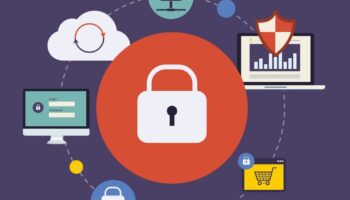 All businesses today should recognise the importance of having an effective cybersecurity policy in place. Data breaches seem to be constantly in the news. Whilst those tend to be high-profile cases like TalkTalk and British Airways, small businesses frequently suffer data breaches too. In recent years, Virtual Private Networks (“VPNs”) have become quite common for home use — so can a VPN improve small business cybersecurity?
All businesses today should recognise the importance of having an effective cybersecurity policy in place. Data breaches seem to be constantly in the news. Whilst those tend to be high-profile cases like TalkTalk and British Airways, small businesses frequently suffer data breaches too. In recent years, Virtual Private Networks (“VPNs”) have become quite common for home use — so can a VPN improve small business cybersecurity?
Well, yes — but let’s cover the basics before examining the business benefits of a VPN.
What Is a VPN?
A VPN is a private network (within the public internet) that enhances your online privacy by:
- Giving you a temporary IP address when you go online
- Encrypting data transfers between your computer and other online resources
- Wrapping that data inside other data to keep it even more private (called “tunneling” or “encapsulation”)
An IP address is the numeric address of your computer on the internet. It tells websites where to send the pages you’re asking for. Unfortunately, it can also reveal who your ISP is, and roughly where you live. That can be useful to criminal hackers.
By using VPN connection software, your computer will communicate with online resources (e.g. web pages) through a network of encrypted channels or “tunnels“. Websites send pages back to the IP address provided by the VPN, which then relays them back to you. So your real IP address — the one associated with your location and identity — isn’t broadcast to every website you visit. Even if those data streams are intercepted, the encryption keeps the information safe from prying eyes.
So How Can a VPN Improve Small Business Cybersecurity?
VPNs vs. Leased Lines
Whilst home use of VPNs is now common, they used to be mostly a business tool. Security has always been vital to business, but leasing private network capacity like T1 lines to connect offices securely can be costly.
By creating private “tunnels” through the public internet, VPNs provide similar security more cost-effectively. So for small businesses with average data needs, a VPN is often a better option than a leased line.
Using a VPN can enhance the security of your business in several ways. Remember, information is power. So the more information a criminal hacker can gather about you, the more you’re at risk of a cybersecurity breach. Even stuff that seems innocuous can be abused.
So first, by masking your IP address, a VPN helps to mask your company’s online activity. It also means you seem to be operating from a different location, even a different country. That can let you access information not normally visible in your country. It can also help you to find services that Google demotes in your country because they aren’t local to you.
Benefits for Remote Workers
If you have staff that often work outside the office, or simply like to do so yourself, you need a VPN.
Public access networks are everywhere, especially in bigger cities like Cardiff, Newport and Bristol — but that doesn’t make them safe to use. Cyber criminals lurk on insecure networks like those in airports, hotels and coffee shops, ready to hijack connections and data. It simply isn’t safe to do business through such systems without extra security — or to let your staff do so.
The secure, encrypted connection provided by a VPN makes sharing sensitive company data over the web much safer. A VPN also helps to enforce confidentiality by hiding information about your location, identity and the resources you access.
…and what if you or your staff need to travel to a country that blocks online resources that would normally be needed to complete the job? A VPN can work around that, too.
Of course, some VPNs come with more security features than others, like automatic back-ups and DNS leak protection. The latter ensures that your requests for online resources aren’t visible to your ISP. So such features are worth bearing in mind when looking for the best VPN for your small business.
Other Business Benefits of Using a VPN
These days, telecommuting isn’t only for client-facing teams. When staff often do goal-focused work that could easily be completed on a laptop at home, it can be cheaper to let them do so. Many now actively seek such flexible working conditions, so providing them can help with staff retention, too. By providing a secure, confidential connection back to the office, a VPN removes one of the biggest practical obstacles to this.
(Just make sure you follow other cybersecurity best practices, too! “BYOD” policies are popular, but it’s far safer to provide all the kit your staff use, and vet it regularly.)
Your clients will feel more secure if they see that your remote team use a VPN, too. It shows that you are doing everything you can to safeguard any information they share with you. That increases trust — and building trust builds sales.
Finally, a VPN service is a relatively cheap and simple way of improving cybersecurity for your company. So the benefits for even the smallest businesses are compelling.
How to Choose a Small Business VPN
As noted above, different VPNs provide different services, making them suited to different businesses. So the one I use may not be the best one for you — and with such a basic security service, it’s important that you get the right one. So in this case, I’d recommend checking out a specialist VPN review site like VPNPro.


